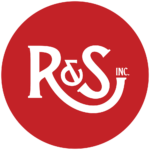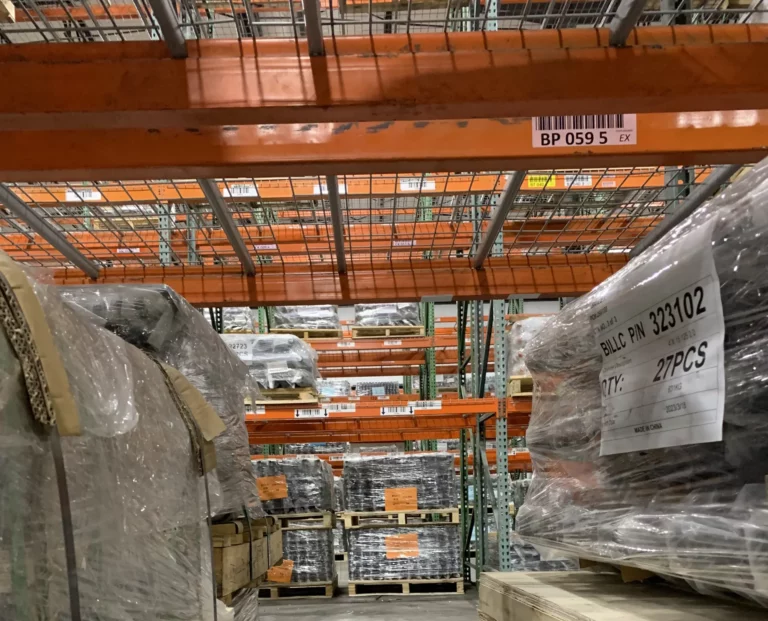The ultimate goals for any business are first to achieve profitability and then to grow. But as your business scales, the complexity of operations can grow too, such as the need to produce more product, space, and storage. At a certain size, most businesses wonder if a 3PL provider benefits their company more or if they should choose in-house logistics.
Choosing between 3PL and in-house logistics hinges on business growth and evolving needs. Initially, in-house logistics offer control, but as complexity grows, 3PLs provide scalability and expertise. As companies grow and business landscapes change, it’s crucial to adapt to the changing landscape and maintain profitability.
3PL vs. In-House Logistics
A 3PL, or third-party logistics provider, is a company that offers outsourced logistics and supply chain management services. They handle functions such as:
- Transportation
- Warehousing
- Distribution
- Fulfillment
- Customer Service
This allows your organization to focus on its core competencies while the 3PL manages the intricacies of logistics operations.
In-house logistics refers to the internal management of logistics and supply chain operations within a company’s own facilities and resources. This approach involves handling tasks such as transportation, warehousing, and inventory management internally, without outsourcing to third-party providers. It offers direct control and customization but requires significant investment in infrastructure and expertise.
Benefits of 3PLs
Partnering with a 3PL offers numerous benefits. They possess extensive industry knowledge and resources, ensuring tailored solutions to meet your logistics requirements effectively. As your business expands, your 3PL’s scalability allows seamless adaptation to increasing order volumes to maintain operational efficiency.
3PLs also provide advanced IT capabilities, including:
- Real-time inventory tracking
- Shipment tracking
- Automated order monitoring
- Inventory alerts
- Enhanced visibility
- Technology integration
- Control over your supply chain
What’s more, they offer diverse delivery options to optimize your customer satisfaction and market reach.
Ultimately, leveraging a 3PL enables your business to focus on core competencies while entrusting logistics management to experts. This leads to cost savings, improved service levels, and greater competitiveness in the marketplace.
Downsides to 3PL
Drawbacks to 3PLs do exist. The biggest one is relinquishing fulfillment control. This means entrusting critical operations to a third party, potentially compromising quality standards and customer experience. Outsourcing logistics leads to reduced visibility of inventory. This can hinder real-time tracking, potentially causing inaccuracies in stock management.
Selecting the appropriate 3PL partner also requires thorough vetting, posing challenges in finding a provider aligning with your specific:
- Needs
- Culture
- Service expectations
This process demands time, resources, and careful evaluation to ensure compatibility and lower risks associated with potential mismatches. While 3PLs offer benefits like cost savings and expertise, your business must weigh these against their possible downsides. R&S takes time to help you evaluate these factors to ensure you get the most out of your partnership with us.
Pros of In-House Logistics
In-house logistics provides several advantages for businesses. The biggest is likely having complete control over your inventory management. This enables customization of storage space and processes to align precisely with your organization’s preferences and requirements. Autonomy like this fosters efficient utilization of resources and streamlined operations.
Another benefit is your ability to offer fully customizable experiences to your customers. From personalized orders to tailored packaging, you can enhance brand differentiation and customer satisfaction.
In-house logistics facilitates greater flexibility in accommodating last-minute changes, whether in:
- Orders
- Delivery schedules
- Operational adjustments
This agility empowers businesses to respond promptly to market fluctuations, customer demands, and unforeseen challenges. The result is fostering resilience and competitiveness in today’s dynamic business landscape.
Cons of In-House Logistics
As with 3PL, in-house logistics come with certain drawbacks for businesses. To start, relying on your company’s internal expertise limits access to specialized knowledge and best practices in logistics operations. This could potentially hinder optimization and innovation.
Operational complexities and overhead costs may also increase due to managing your internal capacity for:
- Labor
- Space
- Equipment
These factors require significant investments in recruitment, training, maintenance, and infrastructure. Additionally, the inability to easily scale or shift labor resources to meet fluctuating demand levels may result in:
- Inefficiencies
- Bottlenecks
- Underutilization of resources
This can impact your company’s overall productivity and profitability.
Another key factor is that your business will bear full responsibility for addressing challenges such as labor shortages, space constraints, and equipment breakdowns. These can disrupt operations and strain resources, making in-house logistics more costly than originally calculated.
Criteria for Selecting the Best Third-Party Logistics Partner
If choosing a 3PL is in your company’s best interest then the next step is to carefully consider several key factors. These factors include:
- Scalability
- Customer service
- Technology infrastructure
Evaluate their scalability and capability to ensure they can accommodate your current needs and future growth. A 3PL with ample capacity and flexibility can adapt to fluctuations in demand and support your business expansion without disruptions.
Equally important is a dedicated account rep for excellent customer service. Since the 3PL will act as an extension of your brand, their professionalism, responsiveness, and attention to detail reflect directly on your business. Focus on 3PL partners who prioritize customer satisfaction and are dedicated to representing your brand positively.
You should also assess the technology infrastructure of potential 3PLs. Look for providers equipped with advanced, enterprise-level technology solutions that streamline logistics processes from order placement to final delivery.
This includes features such as:
- Real-time tracking
- Inventory management systems
- Automated reporting capabilities
With R&S Logistics, you get a technologically proficient 3PL that enhances visibility, efficiency, and accuracy throughout the supply chain. This ultimately improves overall performance and customer experience.
Deciding between 3PL and in-house logistics depends on business expansion and changing requirements. Initially, in-house logistics grant control, but as operations become more intricate, 3PLs offer scalability and specialized knowledge. Consistently reviewing fulfillment strategies is vital for adapting to shifts in the e-commerce environment and ensuring profitability.



